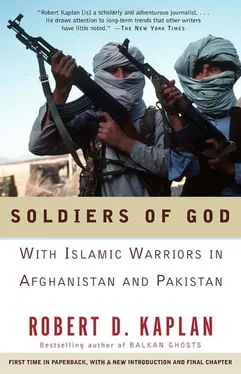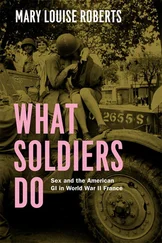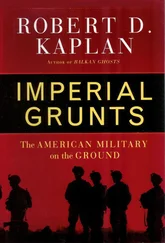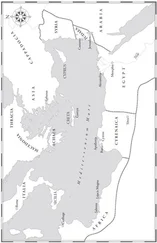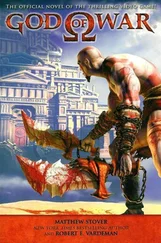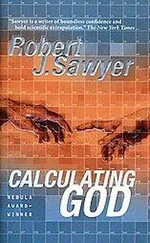Two miles down the road we turned off and headed west across the desert. We were about fifteen miles north of Kandahar, which we would by-pass in order to enter it another day from a southwesterly direction.
The dust thinned and we could make out the hard limestone terrain in the falling evening light. From now on, the desultory rumble of exploding bombs was a permanent sound, except for an hour or two in the middle of the night. The driver speeded on, braking sharply every time we hit a pocket of sand. We were directly under the flight path between Kandahar airport and the Soviet air base at Shindand, south of Herat in western Afghanistan, in a stretch of desert strewn with wrecked vehicles blown apart by missiles or mines.
The drone of a plane penetrated the silence between the exploding bombs. I watched for a sign of recognition from Akbar or the driver, but there was none. Nervously, I asked Akbar about it.
“Just an Antonov transporting troops. They don’t bomb.”
I asked how he knew it was an Antonov, since the plane was flying too high for its contours to be seen.
“By the sound. After a while here you can tell each plane by its sound.”
After climbing a steep, winding pass in total darkness we entered the Arghandab River Valley, and for the first time since leaving Quetta twenty-four hours before, I was among trees and crowds of people. The town of Arghandab, ten miles northwest of Kandahar, had been firmly in mujahidin hands since 1987 and had been rebuilt. The nearby beech and mulberry forests held the largest concentration of guerrillas in the Kandahar region. Each of the seven resistance parties had a presence here.
The journey so far had kept me in a state of dreamlike disorientation. Now, as I came out of the night into town, sights and sounds hit me. Tongas filled with veiled women clopped along. Market stalls were crowded. The Arghandab River, along which the army of Alexander the Great had camped, rippled peacefully. Drivers honked their horns for the right of way. The rumble of explosions had died down for the moment, and it was hard to believe that this village was a short hop from the devastation in Kandahar. Life here appeared so normal, and getting here, despite the breakdowns and dusty discomfort, had been relatively uneventful. Kandahar, which for so long seemed so distant, so impossible to reach, so dangerously enigmatic, was suddenly only a few miles away. And yet it felt farther away here than it did in Quetta.
I began to worry that I had misjudged the story’s significance, that the level of fighting and destruction had been vastly exaggerated by the mujahidin, the war freaks, and the Afghan experts in their feverish effort to get the attention of the media and the outside world. As the Land Cruiser struggled through the brush and forded a series of swamps on its way to the NIFA encampment, I felt two kinds of fear: that there would be fighting, danger, and destruction, and that there wouldn’t be any.
At daybreak I was shaken awake by the low-density thud of a mortar. The hollow, vibrating tenor of the sound meant that the fire was probably incoming, not outgoing. But the fact that it was hard to distinguish meant that the shells were landing at least a few hundred yards away, and it would be safe to make a dash to the latrine, which the “Gucci muj” had rigged up with a light bulb and toilet paper.
The beech and mulberry forest where NIFA made its camp was just north of a chain of piebald mountains, on the other side of which lay Kandahar. Since the Arghandab River Valley was full of mujahidin, as a matter of course Afghan government posts in the northern part of the city regularly fired their 102 mm shells (which have a range of seven to nine miles) over the line of mountains in the direction of Arghandab. The guerrillas replied in kind with their recoilless rifles and captured Russian heavy machine guns.
Coming back from the latrine, I was invited into the commander’s tent for breakfast. Unlike Habibullah, the taciturn Khalis faction’s commander on Spinghar who shared his tent with eleven other men, NIFA commander Ismael Gailani, one of the Pir’s nephews, had a blue and yellow tent all to himself, doubtless purchased in a sporting goods shop abroad. Instead of the flat bread, raw onions, and green tea I ate for breakfast, lunch, and dinner at Spinghar, the commander asked me how I liked my eggs.
Ismael Gailani, in his mid-thirties, was a handsome Pathan with sharp, sculptured features, shiny black hair, and a thick, well-kept beard. His good looks were further embellished by brown-tinted aviator glasses, a matching brown pakol, shalwar kameez, and Banana Republic sleeveless vest… and an ostentatiously displayed Russian Makarov automatic pistol. The number of troops he led was small, but he traveled like a commander, with his own new Czech motorcycle, purchased on the black market in Kabul, and an escort pickup truck with a double-barreled antiaircraft gun mounted on the back.
My first impression of Ismael was not favorable. Like Abdul Haq, he looked stern and impassive when receiving his men. But while Haq’s expression seemed a natural outgrowth of his thoughts at the moment, Ismael appeared to be striking poses. I assumed that Ismael, like so many foreigners and NIFA officials on the Northwest Frontier, was afflicted with a milder version of what Major General Rahim Wardak suffered from: he had convinced himself that he was a character in a movie.
Ismael told me he had attended university in India, had a wife and three daughters in London, and was extremely lonely here in Arghandab. These revelations unsettled me. Mortar fire was landing all around us. There was nothing vicarious about the danger he was in. The movie was real, though his own role in it had obviously been blown out of proportion. I had a wife and son in Greece, and explaining to them why I constantly traveled as a journalist to war zones was not always easy; explaining such a life to our Greek neighbors, who harbored little interest in the world outside their country, was nearly impossible.
Like Ismael, I judged myself a lonely person: at home, few comprehended the fascination of my work, and when traveling I was frequently in the company of people from non-Western cultures, with whom my relationships were, perforce, fleeting. But Ismael’s loneliness had to be much greater. His family was larger than mine, he had been away from them for many more months, and he was in more constant danger than I was. Unlike Abdul Haq, he was much too Westernized to be emotionally compensated by the company of his manly fellows. Inside Afghanistan, the average NIFA mujahid was just as much of a backwoodsman as the Khalis fighters, and it was often just the accident of tribal loyalty that steered some Pathans toward NIFA rather than into the ranks of the fundamentalists. But Ismael, with his shampoo and his Walkman lying in the corner of his tent, was culturally some distance from his own troops.
“I can’t explain to people in London what I’m doing here,” Ismael told me. “My wife’s friends tell her that I’m crazy. They tell her I could get killed. So when I’m in London, I ask them, ‘Didn’t you fight against the Nazis?’ They answer, ‘Yes, but we weren’t occupied. Our children weren’t threatened like in Afghanistan. So why don’t you just make peace with the Russians? Why do you go on fighting?’ How can an Afghan communicate to people who think like that?”
I began to understand that Ismael, in his own pampered way, was heroic, if in wholly different terms and on a more muted scale than Abdul Haq. Haq’s heroism and the value he placed on freedom were instinctive reflexes. His bravery was as natural as the thorns that grew on the mountains in Nan-garhar. Ismael, through conscious thought, had come to place a high value on freedom too. The modest heroism that he displayed… his permanent presence in Arghandab… he had willed at some personal cost. By the standards of Abdul Haq, the fundamentalists, and the Pathans, Ismael Gailani was not much of a commander, but by Western standards he was a person to be taken seriously.
Читать дальше
